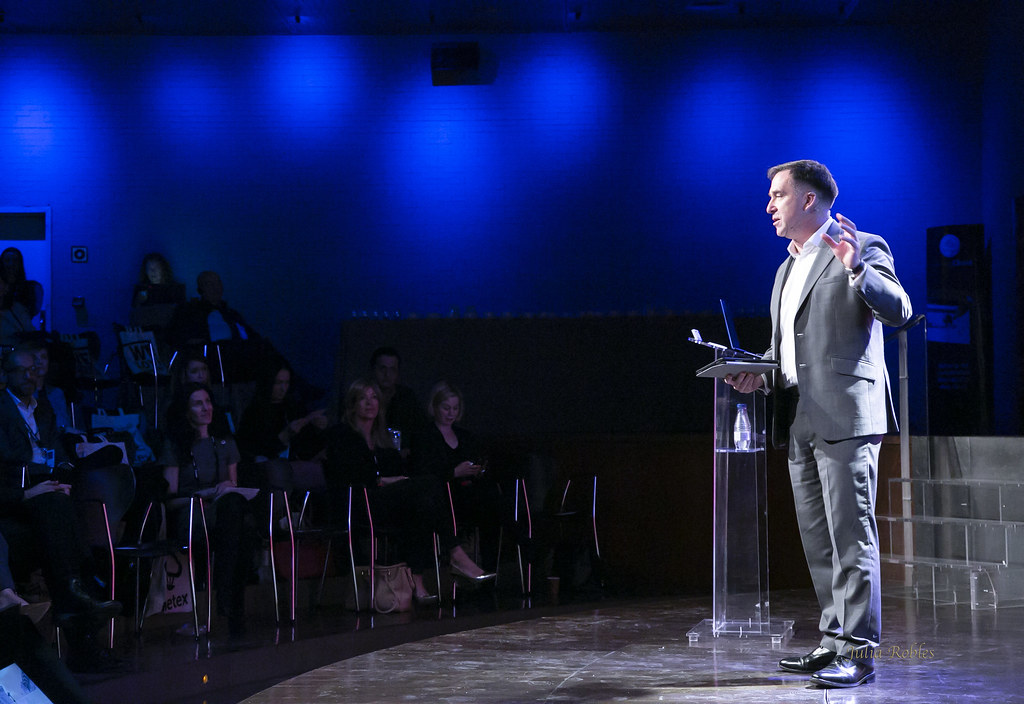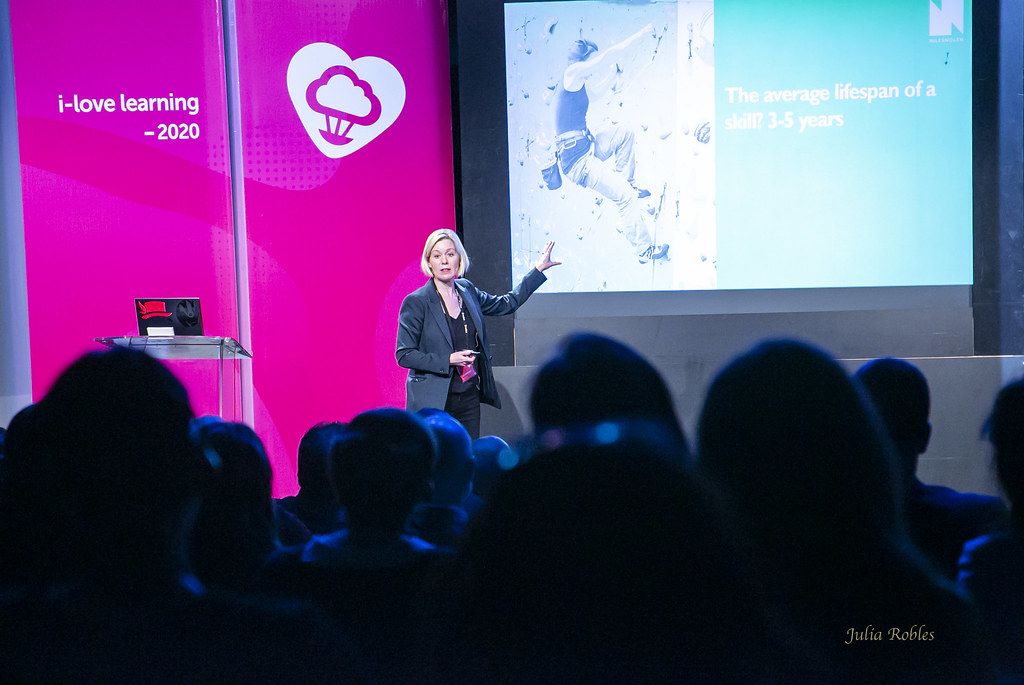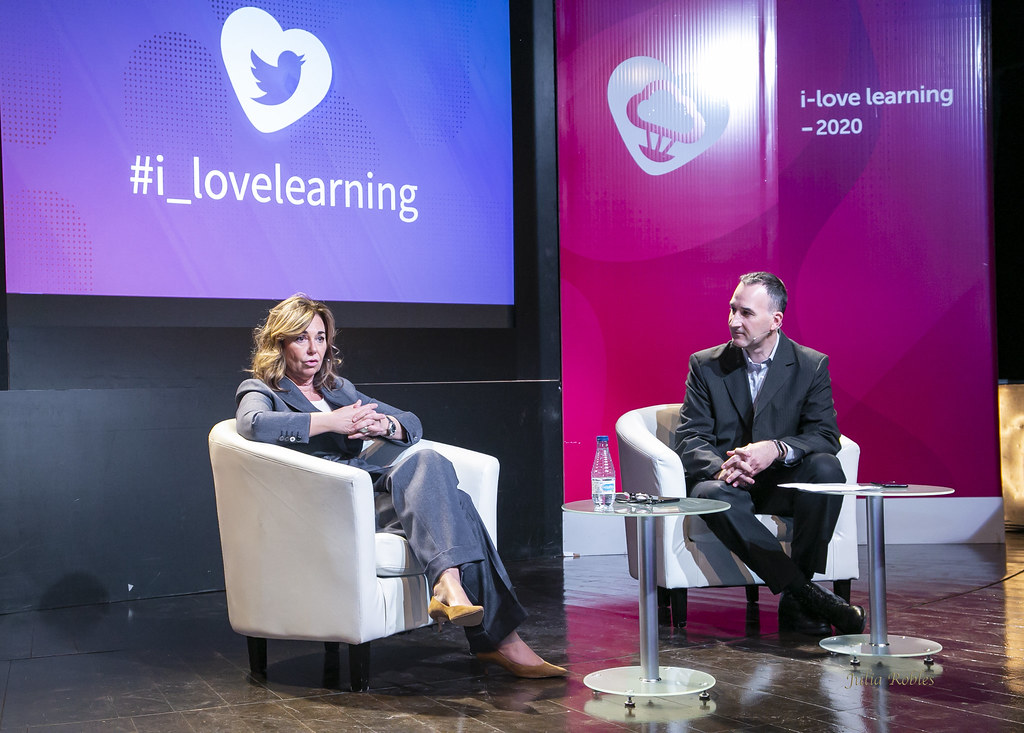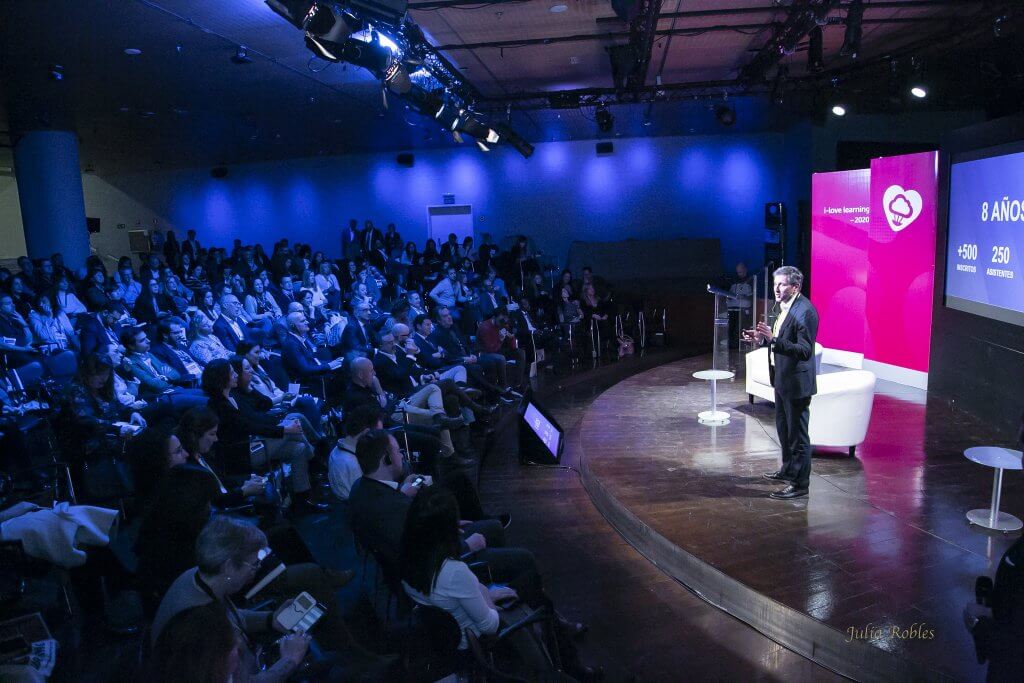Share
During the eighth edition of the i-love learning event sponsored by Netex Learning on February 14th, 2020, we heard about the past, the present and the future: about real cases that are being developed in different companies, about inspirational stories that force us to get out of our comfort zone, and the trends that are beginning to be implemented by some companies and that will be common tomorrow.
All this knowledge helps to have a better understanding of the world around us, and confirms that all sectors and companies change faster and faster.
In her welcome presentation, Eva Astorga, Digital Talent Leader at Mahou San Miguel, began by citing Kant and the categorical imperative, which states that each person must act in such a way that they use humanity as an end and never simply as means, thus if something is good for everyone, it is good for each individual.

It’s good for everyone, ergo is good for you.
Kant
This model of thinking underlies the so-called Teal or “emerald” companies described by F. Laloux. However, most of the current companies remain under “orange” paradigms, in which results orientation and meritocracy predominate, fostering individualism and work in silos, that is, individual benefit over the collective.

Keynote speaker Donald H. Taylor, president of The Learning and Performance Institute, began by asking attendees how they think their job has changed in the last 5 years, opening an interesting debate on the “how” more than about the “what”, that is, regarding collaboration habits rather than technologies or specific tools. He stressed that companies need to adopt a new way of working in L&D: faster, smarter and more strategic.
Donald also presented the main conclusions of “The L&D Global Sentiment 2020 Survey”, among which Learning Analytics and personalisation of content were the most relevant. He also showed the results of the survey in Spain.

In the following presentation, Lori Niles-Hofmann, consultant and learning strategist at NilesNolen agency, emphasised the importance of placing the student at the centre of the transformation strategy. According to Lori, the key is not so much to ask people to develop new learning habits, but to guide them where they can seek them, so that they find the most appropriate learning model for their motivations.

After the coffee break, courtesy of Santillana, the second part of the event began with Elisabetta Galli, Global Head of Knowledge Management, Development and Talent at Banco Santander. Elisabetta presented the model she is leading in order to turn the bank into a learning organisation. During her presentation, she introduced “Dojo” platform, a lever aimed at identifying gaps in the capabilities of professionals, and a first step to think about the future while focusing on the real needs of upskilling and reskilling of employees within the financial entity.

It was followed by a debate, led by Sergio Sotelo, Global Services Director at Netex Learning, it was concluded that most companies are competing for the same skills, so it is essential that each professional assumes that they have the power to decide on what and how to learn in order to remain relevant, that is, to develop accountability competence and the motivation to develop continuously.

In the following presentation, Margarita Álvarez P. de Zabalza, CEO of Working for Happiness, reflected on how to make technology help us to be better humans, being aware that the algorithms already govern our day to day, and therefore every time it becomes more important to prepare ourselves to complement them in the new digital world.

Finally, Carlos Ezquerro, CEO of Netex Learning, rewarded NASCO Feeding Minds with a recognition for their social project, which was explained and narrated by its founder, Ousman Umar, through an exciting “journey of the hero”.

For Ousman, author of the book “Journey to the Land of the Whites”, education is the greatest gift and responsibility that a person can receive, raising awareness among those present about the importance of learning and teaching others to have more tools to build their future of those he himself had in his home country, Ghana.
The event closed with a cocktail by Spanish chef Ramón Freixa served in the halls of the Linares Palace, where 250 attendees talked and discussed the many interesting points of the day.

Share

